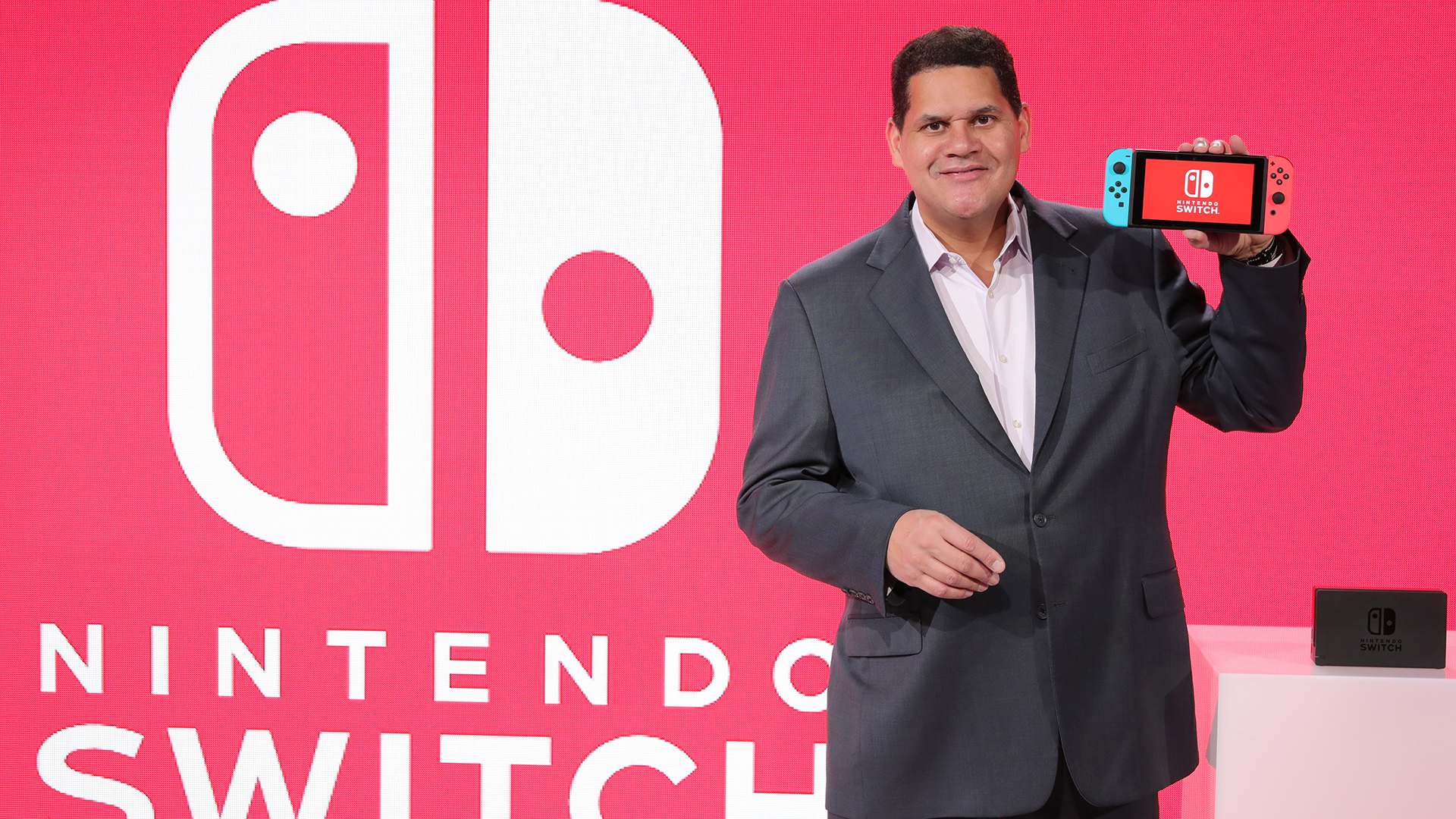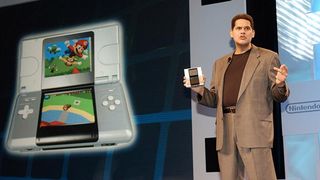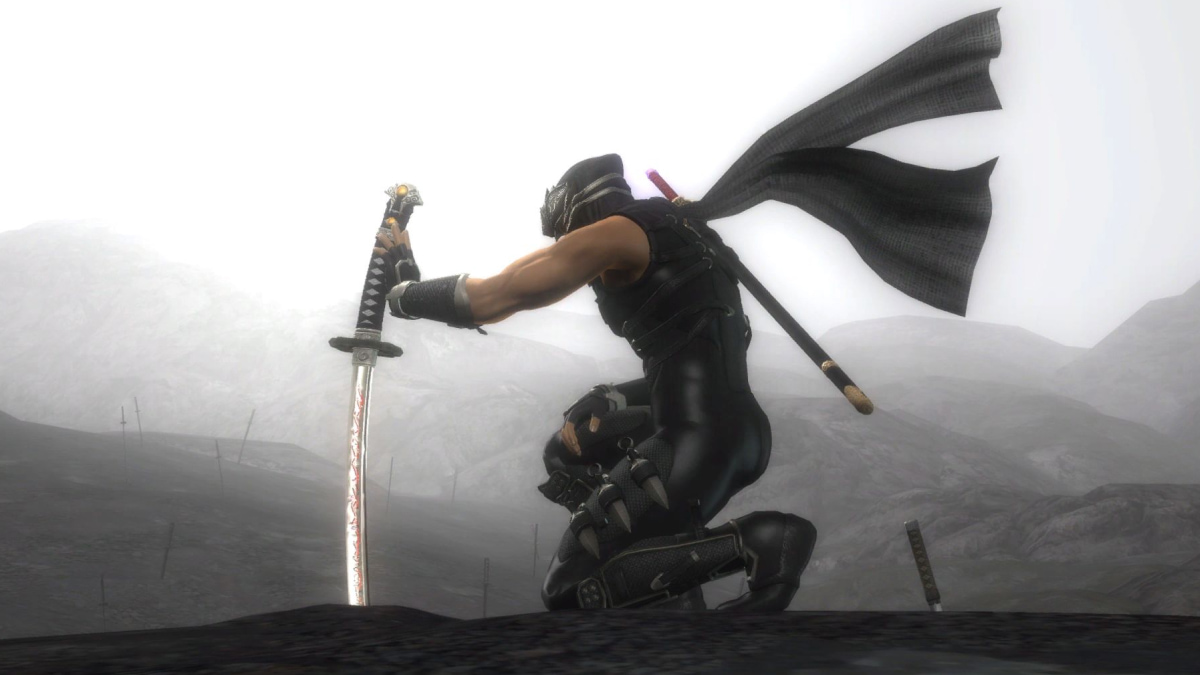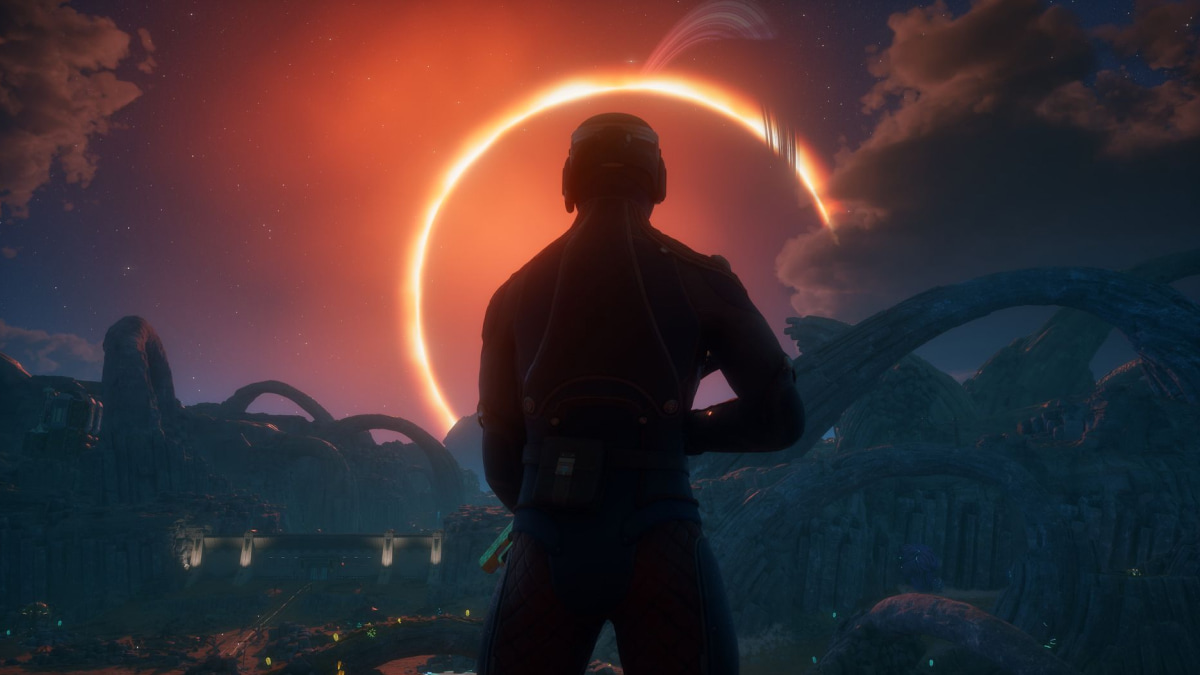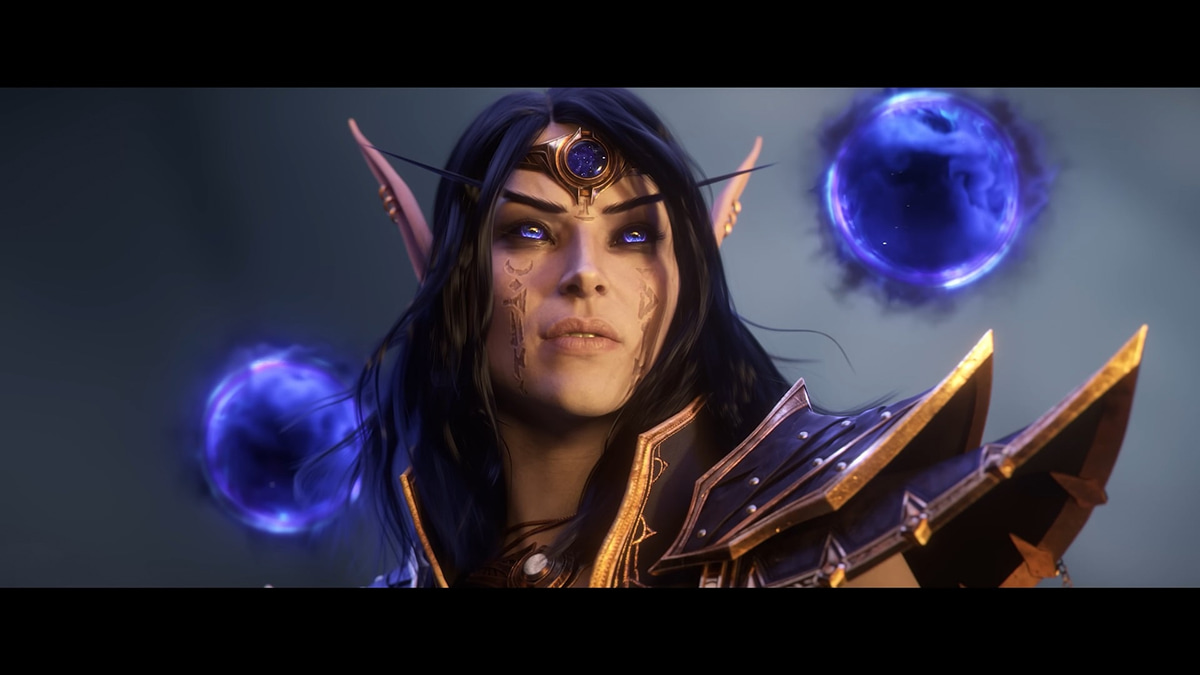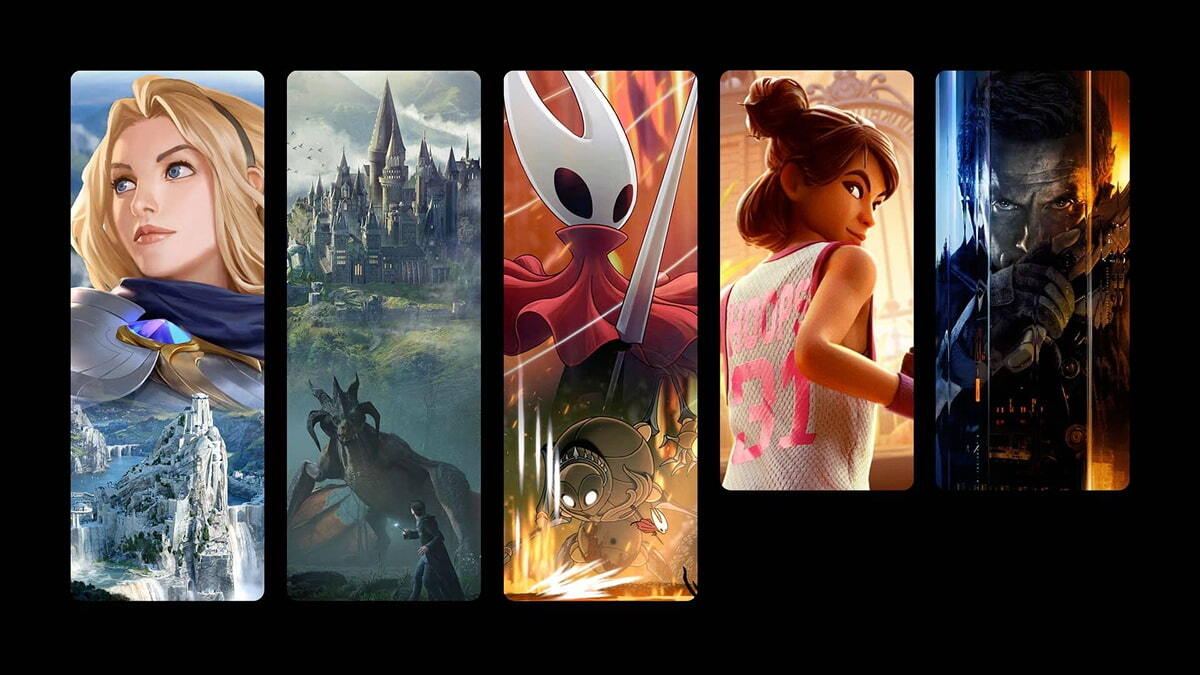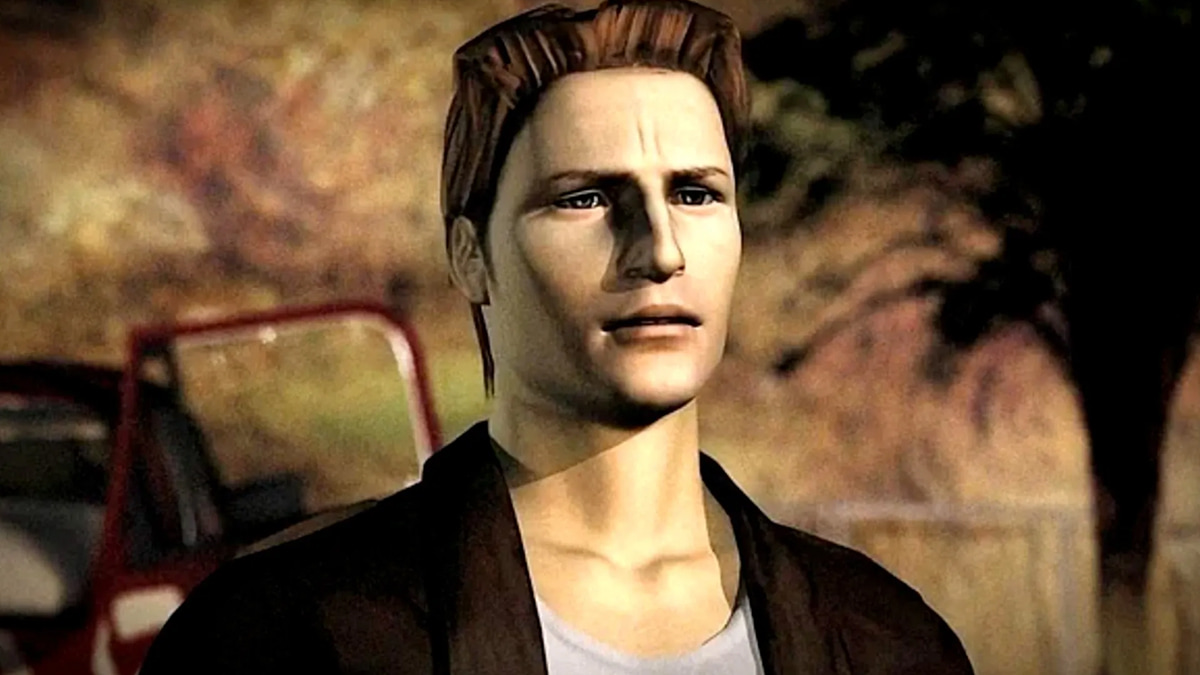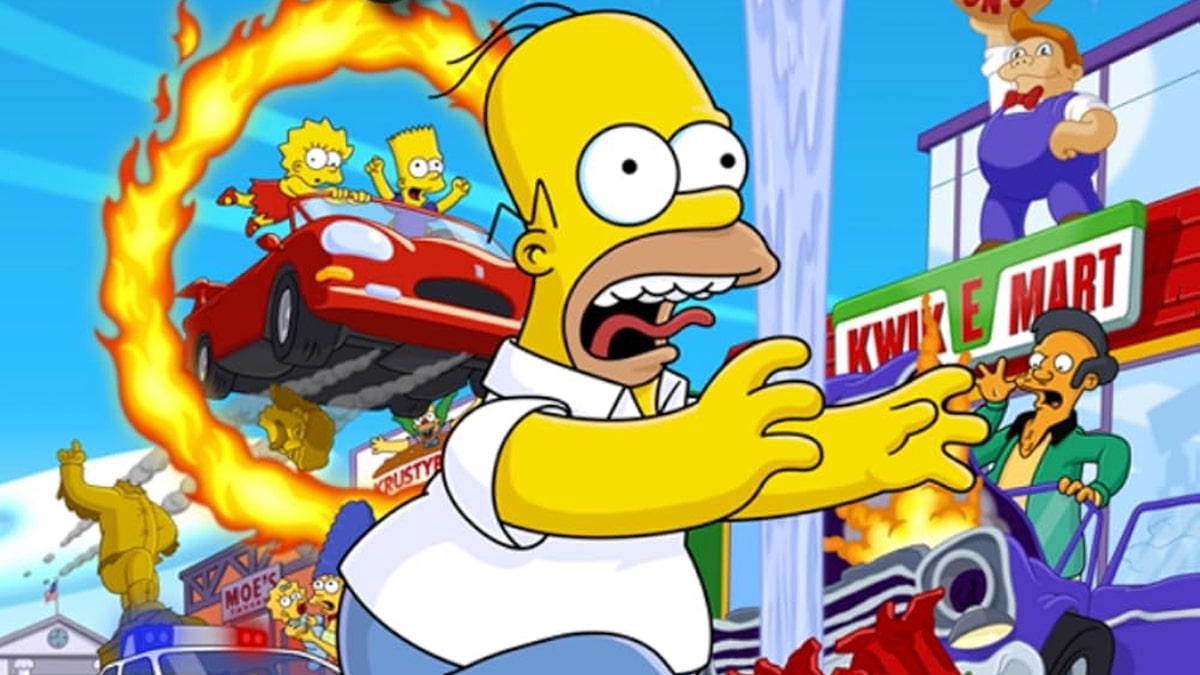You can trust VideoGamer. Our team of gaming experts spend hours testing and reviewing the latest games, to ensure you're reading the most comprehensive guide possible. Rest assured, all imagery and advice is unique and original. Check out how we test and review games here
Shigeru, Satoru, Tatsumi, and Ken; Shuhei, Phil, and Don; there’s Peter and Jack and Shaun and Kaz; with Palmer, Trip, and Tim. It’s a fine list, strung together tightly, like pearls on a presidential necklace, but none of them carry the same ring as ‘Reggie.’ Perhaps, if you’re the knowledgeable sort, you can pin the appropriate surnames in place, but ever since his first E3 press conference – in which he announced, ‘My name is Reggie. I’m about kickin’ ass, I’m about takin’ names,’ – he ensured we’d never need to take his.
Nevertheless, here it is: Reginald Fils-Aimé, the president of Nintendo of America, announced Thursday night that he will be stepping down from his position – which he has held for 15 years – on April 15. For many of us, this is a sombre moment, but why? Why should a change of company president mean so much to the players? Well, for one thing, Reggie almost seemed to teeter toward the fans more than the top brass – as if, at any moment, he might just vault over the barricades and join in the manic cheer on the other side.
He also has presence. With the weight and force of his thudding arrival on stage, he has the air and look of a Thwomp – coaxed, by the sheer love of video games, into everting its furious grimace into a winning smile. During the E3 2015 Nintendo Direct broadcast, Reggie was rendered to the world as a puppet, which was both genius and superfluous. There was already much of the muppets about him: the eyes, like black beads, gently seized in the grip of aggressive joy; and the hair, closely cropped and plush like felt. Between him, Iwata, and Miyamoto, Reggie was the only one whose buoyancy and benevolence was sapped, not boosted, by the transformation.
The Bronx-born son of Haitian immigrants, Fils-Aimé graduated Brentwood High School, in Long Island, and attended Cornell University in 1979, leaving with a degree in applied economics. His alpine career trajectory is enough to dampen even the most hard-working of souls with the distinct feelings of guilt and laziness. In an interview with the New York Times, he describes the beginning of his professional life, saying, ‘I was selected by Procter & Gamble as an undergraduate candidate to go into its brand management program, which is typically available only to M.B.A. candidates.’ It’s as if the folks at Procter & Gamble were faced with a character select screen and couldn’t resist the wattage of his grin.
From there, Fils-Aimé took a senior director position at Pizza Hut, where he launched both the Bigfoot Pizza and The Big New Yorker. It seems he had a knack for making companies rise. After pouring his efforts into Guinness Imports Co., as head of marketing, he freewheeled to Raleigh U.K., as managing director. During his stint at MTV’s VH1, he helped increase the channel’s ratings by 30% — his strategy was to shift focus to a younger viewership.
When he arrived at Nintendo, in December 2003, he would find himself on the crest of wave rolling the other way. As part of the ‘blue ocean strategy,’ under the aegis of Satoru Iwata, Nintendo’s focus shifted from its young, established core toward a wider, older audience. Thus began the era of Brain Training on the tube and gaming grandparents. That the earliest days of Fils-Aimé’s tenure at Nintendo were marked by such surging success can hardly be attributed to him. Nevertheless, when I cast my mind back to the launch of the DS, it’s Reggie I remember: that early-model console, with the lick of black paint down the middle, pulled from the billowing lapels of his blazer. He had the easy slickness of a magician.
On May 25, 2006, Fils-Aimé became the President of Nintendo of America, overseeing the launches of the Wii (joyously dubbed the ‘Reggielution,’ a play on its development codename, the ‘Revolution’) the Wii U, and the Switch. As ups and downs go, they don’t often get deeper or more rarefied than that; and in era in which being a Nintendo fan meant submitting to both spiritual enlightenment and self-flagellation, Reggie was reassuring – a rock in times of churning change.
So, what sort of Nintendo will Reggie leave behind? Limping from the wreckage of Wii U, the Switch has – in typical Nintendo fashion – defied the odds and thrived. After the bloom of its launch, in March 2017, the past two years have marked it as a doughty underdog (an apt description of Reggie). But it isn’t the decisions and the paths that the company will walk – which will come from higher places – it’s who can shepherd us through. Reggie’s successor is one Doug Bowser, to whom we’ve yet to warm, but perhaps the most promising sign for the future is this: we need not worry about remembering his surname.
